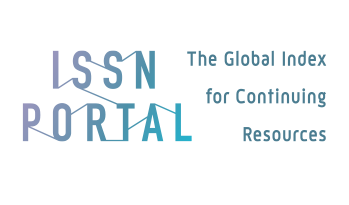PERUBAHAN PELAYANAN KELUARGA BERENCANA PADA MASA PANDEMI COVID-19
DOI:
https://doi.org/10.37776/zkeb.v11i3.803Keywords:
Services, family planning, pandemicAbstract
The Covid-19 pandemic has had a major impact on the implementation of the Family Be (KB) program which has relied on face-to-face activities in socializing, counseling, and providing services. The decline in access to health facilities during the pandemic has resulted in a decrease in the number of family planning programs and the number of contraceptive users, which can lead to unwanted and untimely pregnancies. This increases the risk of an increase in the number of unplanned pregnancies and a population explosion that has an impact on the higher Maternal Mortality Rate (MMR) and thwarts efforts to build Indonesia's future with quality resources in the bonus era. This study aims to determine the planning and evaluation of family planning programs during the Covid-19 pandemic. This research method uses a library research approach with a literature study approach. From the results of the study, it is known that the family planning program that was run during the pandemic had implemented planning based on the priority of existing problems by refocusing funds, issuing family planning service program guidelines during the pandemic, and maximizing the role of family planning instructors to assist services. Monitoring and supervision have also been carried out on a regular basis. However, there is a need for support in family planning services by providing contraception devices and complete health protocol PPE evenly, increasing the involvement of cadres and the community for areas that do not have easy access to services and there is no vaccine that is absolutely safe to use for pregnant and lactating women.Downloads
References
Aprillia, Yuna Trisuci, Asyifa Robatul Adawiyah, and Santi Agustina. 2020. “Analisis Penggunaan Alat Kontrasepsi Sebelum Dan Saat Pandemi Covid-19.†Jurnal Untuk Masyarakat Sehat (JUKMAS) 4(2): 190–200.
Aqmal, Romi. 2020. “Pendidikan Keluarga Dan Partisipasi Masyarakat Pada Program Keluarga Berencana Di Masa Pandemi Covid-19 Desa Kerandin Kecamatan Lingga Timur Kabupaten Lingga.†TANJAK: Journal of Education and Teaching 1(2): 2013–2222.
Betti Iriyanti Br Panjaitan, Yusro Hadi M Yuliawati3. 2017. “Hubungan Antara Jenis Kontrasepsi Suntik Dan Lama Pemakaian Dengan Kenaikan Berat Badan Pada Akseptor Kb.†Jurnal Kesehatan Metro Sai Wawai X(1): 10–15.
Dwijayani, Lidya, Rita Damayanti, Kampus Baru, and U I Depok. 2020. “DAMPAK PANDEMI COVID-19 TERHADAP PEMANFAATAN MOBIL UNIT PELAYANAN ( MUYAN ) KB TAHUN 2020.†: 112–20.
Gayatri, Maria, Pusat Penelitian, and Keluarga Berencana. 2020. “Pemakaian Kontrasepsi Modern Pada Wanita Nulipara Dan Primipara Usia 15-24 Tahun Di Indonesia.†5(01): 57–61.
Intan Yusita, Richa Noprianty, Ratna Dian Kurniawati, Linda Rofiasari, Antri Anriani. 2020. “PENDAMPINGAN WANITA PASANGAN USIA SUBUR DALAM PENGGUNAAN KONTRASEPSI SEBAGAI UPAYA MENEKAN BABY BOOMS DI MASA PANDEMIC COVID-19.†Jurnal Ilmu Kesehatan Masyarakat 2(04): Volume 2 Nomor 4,. http://jurnal.globalhealthsciencegroup.com/index.php/JPM.
Koroy, Tri Ramaraya, Riswan Yudhi Fahrianta, and Uniek Mulyaning Sari. 2020. “Peran Tingkat Intensi Memiliki Anak Sebagai Determinan.†5(02): 21–31.
Mandira, Tria Monja et al. 2020. “Edukasi Program Keluarga Berencana (Kb) Pada Wanita Usia Subur Selama Masa Pandemi Covid 19.†Jurnal Abdi Masyarakat 1(1): 108–12.
Moloku, Mentari, Ester Hutagaol, and Hutagaol Gresty. 2016. “Hubungan Lama Pemakaian Lama Kontrasepsi Suntik 3 Bulan Dengan Perubahan Berat Badan.†Jurnal Hasil Penelitian 4: 1–8.
Pembajeng, Gilar Sekar, Kayla Zahra Azalea, University of Indonesia, and Kezia Chrisiavinta. 2020. “Perencanaan Dan Evaluasi Program Keluarga Berencana Pada Masa Pandemi COVID-19.†3(1): 29–35. https://www.researchgate.net/publication/348049736_PERENCANAAN_DAN_EVALUASI_PROGRAM_KELUARGA_BERENCANA_PADA_MASA_PANDEMI_COVID-19.
Penyuluhan, Balai, and K B Kecamatan. 2021. “Artikel Penelitian Analisa Situasi Dan Peran Institusi Masyarakat Pedesaan Selama Pandemi Covid-19.†7(1): 1–8.
Prawita, Ade Ayu, and Aneka Sastrawati Gulo. 2019. “Hubungan Penggunaan Kontrasepsi Suntik 3 Bulan Dengan Kenaikan Berat Badan Ibu Di Klinik Linez Kota Gunungsitoli.†Jurnal Bidan Komunitas 2(3): 153.
Purba, Megaria, Endang Budiati, and Achmad Djamil. 2020. “Determinan Perilaku Yang Berhubungan Dengan Terjadinya Unmet Need KB Pada Pasangan Usia Subur (PUS) Di Kota Bandar Lampung.†Malahayati Nursing Journal 2(3): 491–504. http://ejurnalmalahayati.ac.id/index.php/manuju/article/view/2879.
Ramlan, Uniek Mulyaning Sari, Oktriyanto, M.Nur Iman Ridwan, Ferdinan Salim. 2020. “KINERJA PENYULUH KB DALAM PERSPEKTIF PARA KADER DI LIMA KABUPATEN/KOTA PROVINSI KALIMANTAN SELATAN.†: Vol.5 No.02 (2020) 32-42.
Soewondo, P. et al. 2020. “Bagaimana Layanan Keluarga Berencana Respons Terhadap Pandemi COVID-19 Di Indonesia: Studi Kasus Di 8 Kabupaten/Kota.†Prosiding Forum Ilmiah Tahunan (FIT) IAKMI: 1–9.
Studi, Program et al. 2021. “OLEH WANITA USIA SUBUR DI MASA PANDEMI COVID – 19 WILAYAH PMB JUJU JUHARNI KOTA DEPOK PERIODE 2020 KARYA TULIS ILMIAH OLEH WANITA USIA SUBUR DI MASA PANDEMI COVID – 19 WILAYAH PMB JUJU JUHARNI KOTA DEPOK PERIODE 2020.†2020.
Sugandini, Wayan, and Luh Mertasar. 2021. “Keterampilan Konseling Keluarga Berencana Mahasiswa D3 Kebidanan Melalui Kuliah Daring Di Masa Pandemi Covid 19.†Jipp 5: 31490.
Witono, and Suparna Parwodiwiyono. 2020. “Kepesertaan Keluarga Berencana Pada Masa Awal Pandemi Covid-19 Di Daerah Istimewa Yogyakarta.†Kependudukan, Keluarga, dan Sumber Daya Manusia 1(2): 77–88. http://pancanaka.latbangdjogja.web.id/index.php/pancanaka.
Yusita, Intan et al. 2020. “Pendampingan Wanita Pasangan Usia Subur Dalam Penggunaan Kontrasepsi Sebagai Upaya Menekan Baby Booms Di Masa Pandemi Covid 19.†Jurnal Peduli Masyarakat 2(Desember): 59–64.
















